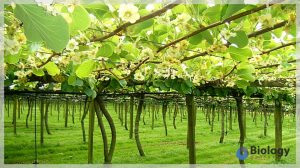Definition
noun
A behavioral response of a cell or an organism to a soluble chemical that leads to random or directionally non-oriented movement
Supplement
Chemokinesis is the non-oriented or random movement of a motile cell to a soluble chemical. It should not be confused with the other term, chemotaxis. Chemotaxis is a kind of taxis, in which bodily cells, bacteria, and other single-cell or multicellular organisms direct their movements according to certain chemicals in their environment. This is important for bacteria to find food (for example, glucose) by swimming towards the highest concentration of food molecules, or to flee from poisons (for example, phenol). It is a response of motile cells or organisms in which the direction of movement is affected by the gradient of a diffusible substance. It differs from chemokinesis in that the gradient alters probability ofmotion in one direction only, rather than rate or frequency of random motion. Similarly though, both chemotaxis and chemokinesis is chemically prompted movement of a cell.
Chemokinesis involves orthokinesis and klinokinesis. Orthokinesis is a form of kinesis in which the speed of movement of the individual depends upon the intensity of the stimulus. An increase in the speed of movement is a positive orthokinesis whereas a decrease in the speed is referred to as negative orthokinesis. Klinokinesis is another form of kinesis wherein the frequency or rate of turning is proportional to the intensity of the stimulus.
Word origin: chemo– (of chemicals) + kinesis
Compare:
Dictionary > Chemokinesis
You will also like...

Control of Growth & Development
Control of Growth & Development tutorials look at how the genetic makeup determines the biological processes on a da..

Insects
There are more species of insects than any other species combined. This surely illustrates that insects have the selecti..

Neurology of Illusions
Illusions are the perceptions and sensory data obtained from situations in which human error prevents us from seeing the..

Homeostatic Mechanisms and Cellular Communication
Homeostasis is the relatively stable conditions of the internal environment that result from compensatory regulatory res..

Biosecurity and Biocontrol
This lesson explores the impact of biosecurity threats, and why they need to be identified and managed. Examples to incl..

Genetic Engineering Advantages & Disadvantages
This tutorial presents the benefits and the possible adverse eventualities of genetic engineering. Know more about this ..

